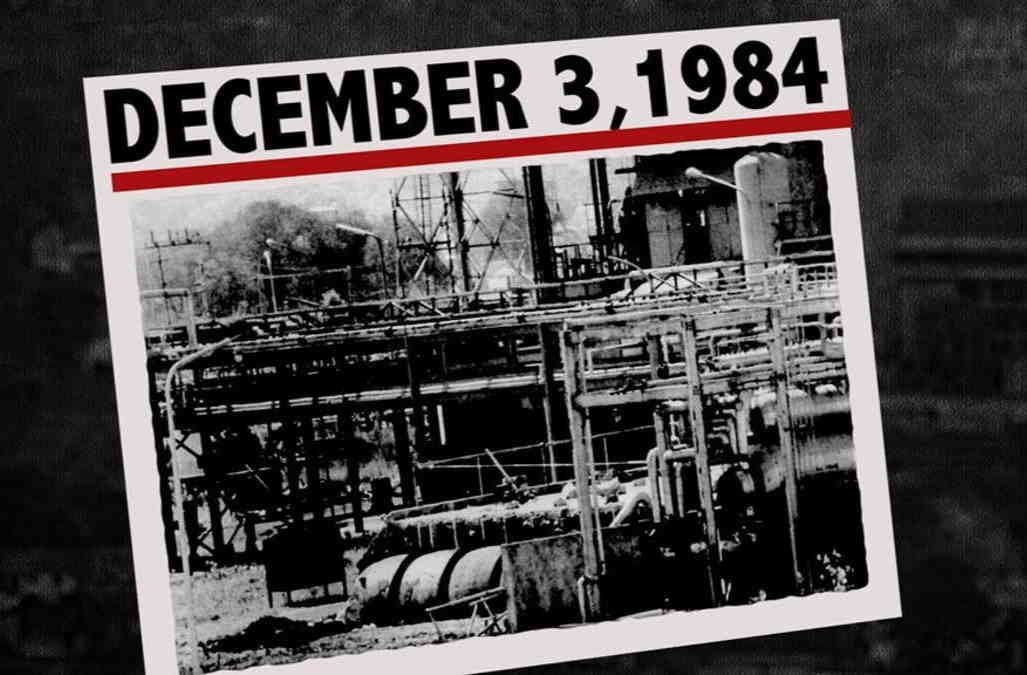The Bhopal disaster, one of the worst industrial accidents in history, shook India on the night of December 2-3, 1984. It was a catastrophic event that claimed thousands of lives and left many more injured and suffering from long-term health problems. The disaster happened when a pesticide plant owned by Union Carbide Corporation released toxic gas into the air, exposing thousands of people to the deadly gas. The aftermath of the Bhopal disaster raised many questions about corporate accountability and highlighted the need for stronger safety regulations in the industrial sector.

Key Takeaways
- The Bhopal disaster was a tragic event that took place in India in 1984.
- It was caused by a toxic gas leak from a pesticide plant owned by Union Carbide Corporation.
- The disaster claimed thousands of lives and left many more with long-term health problems.
- The Bhopal disaster raised questions about corporate accountability and the need for stronger safety regulations in the industrial sector.
- The impact of the disaster is still felt today, with ongoing struggles faced by the survivors and their families.
Understanding the Bhopal Disaster
The Bhopal disaster remains one of the worst industrial accidents in history. The tragedy occurred on December 2-3, 1984, when a chemical gas leak from the Union Carbide pesticide plant spread throughout the city, affecting hundreds of thousands of people. The incident caused immediate panic and chaos, with people fleeing their homes in search of safety.
The cause of the tragedy was identified as a gas leak from a storage tank that contained methyl isocyanate (MIC), a lethal chemical used in the manufacturing of pesticides. The plant had multiple safety and maintenance issues, leading to the buildup of water in the MIC tank, causing a chemical reaction and the subsequent release of toxic gases.
The incident caused immediate panic and chaos, with people fleeing their homes in search of safety.

Events Leading up to the Disaster
The Bhopal disaster was not an isolated incident, but the result of long-term neglect and corporate negligence. Union Carbide, the American corporation that owned the plant, had a history of ignoring safety regulations and cutting corners to save costs. The plant was located in a densely populated area, and local authorities had raised numerous concerns about the safety of the factory and the potential danger it posed to the community.
However, Union Carbide failed to take the necessary precautions, and the government turned a blind eye to the issue. The result was a catastrophic event that claimed thousands of lives and left a lasting impact on the region.
Immediate Aftermath
The immediate aftermath of the disaster was chaotic and overwhelming. Thousands of people were hospitalized, and the death toll continued to rise for many months. The gas leak also caused widespread damage to the environment, polluting the soil and groundwater, and affecting the crops and livestock of the surrounding areas.
| Impacts of Bhopal Disaster | Statistics |
|---|---|
| Deaths | 3,787 immediately, up to 15,000 over time |
| Injuries | Over 500,000 |
| Environmental Pollution | Increased contamination of soil and groundwater, lasting effects on crops and livestock |
The survivors were left to grapple with the physical and emotional impact of the disaster, with many suffering from long-term health issues such as respiratory problems, blindness, and cancer. The Bhopal disaster was a tragedy that left scars on the community that are still felt today.
Impact on Environment and Health
The Bhopal disaster left a devastating impact on the environment, with toxic gases and pollutants being released into the atmosphere. The release of methyl isocyanate gas into surrounding areas caused widespread environmental pollution. The effects of this pollution, including contamination of soil and water, continue to have long-term consequences for the affected communities.
In addition to the environmental impact, the toxic exposure caused serious health consequences for those affected by the disaster. Reports suggest that the toxic gases resulted in immediate fatalities, with thousands of people suffering long-term health problems such as respiratory illnesses, neurological damage, and impaired immune systems. The effects of this toxic exposure are still being felt today, with many individuals and families impacted for generations to come.
| Environmental Impact | Health Impact |
|---|---|
| Release of toxic gases and pollutants | Immediate fatalities, with thousands suffering from long-term health problems such as respiratory illnesses, neurological damage, and impaired immune systems |
| Widespread environmental pollution, including contamination of soil and water | Health consequences for those exposed to the toxic gases continue to be felt for generations to come |
This disaster serves as a stark reminder of the importance of stringent industrial safety measures, with strict regulations needed to prevent similar events from occurring in the future. It also highlights the need for corporations to take responsibility for their actions and be held accountable for any harm caused as a result of their operations.
Legal Implications and Fight for Justice
The Bhopal disaster had significant legal implications, with several lawsuits filed against Union Carbide, the corporation responsible for the chemical gas leak. However, the fight for justice faced many challenges in holding the corporation accountable for its corporate negligence.
The Indian government filed a lawsuit against Union Carbide, seeking compensation for the damages caused by the industrial accident. The case was settled in 1989, with the corporation agreeing to pay $470 million to the Indian government. However, many activists and survivors considered this amount inadequate and argued that the corporation should have faced criminal charges.

| Legal Battles | Outcomes |
|---|---|
| The Indian Government vs. Union Carbide | The case was settled in 1989, with Union Carbide agreeing to pay $470 million to the Indian government. |
| The Bhopal Gas Peedith Mahila Udyog Sangathan vs. Union Carbide | The case was settled in 1989, with the survivors receiving $350-$500 as compensation. |
| The Bhopal Gas Peedith Mahila Stationery Karmachari Sangh vs. Union Carbide | The case was settled in 1991, with the survivors receiving $500 as compensation. |
| The Indian Government vs. Dow Chemical Company | The case is ongoing, with the Indian government seeking $1.2 billion in damages from Dow Chemical Company, which acquired Union Carbide in 2001. |
The survivors of the Bhopal disaster, through their organizations, have also filed several legal cases against Union Carbide. The Bhopal Gas Peedith Mahila Udyog Sangathan and the Bhopal Gas Peedith Mahila Stationery Karmachari Sangh are two such organizations that fought for the rights of the affected individuals. However, the compensation received by the survivors was meager, and many continue to suffer from physical and mental health problems to this day.
The Bhopal disaster raised questions about corporate accountability and highlighted the need for stricter regulations on industrial safety. The legal battles against Union Carbide served as a reminder that corporations must be held responsible for their actions, and that justice must be served, no matter how long it takes.
Lessons Learned: Strengthening Industrial Safety
The Bhopal disaster served as a wake-up call for industries worldwide to prioritize industrial safety and corporate responsibility. Efforts have been made to implement changes to prevent accidents like this from occurring again. Companies started to invest in newer technologies and best practices that aim to minimize the chances of industrial disasters.
Additionally, governments took proactive steps by implementing stricter laws that mandate safety measures in workplaces and heavy penalties for corporate negligence. The case of the Bhopal disaster also led to the creation of international environmental laws meant to ensure that industries put the safety of humans and the environment first.
“Safety should be the number one priority of any company. A business cannot thrive if it cannot ensure the safety of its workers and its surroundings.” – Satya Nadella
In conclusion, the Bhopal disaster taught the world an essential lesson – that corporate negligence in terms of industrial safety can have disastrous consequences. Governments, regulators, and companies need to work hand in hand to create a culture of safety and prioritize the well-being of people and the environment. Only then can we prevent future tragedies from happening.
Remembering the Human Tragedy

The Bhopal disaster not only caused environmental and health damage but also brought immeasurable pain and suffering to individuals and families affected by the tragedy. Survivors of the gas leak have been left with lifelong health problems, forcing them to bear the consequences of corporate negligence for decades.
“I lost my entire family in the gas leak – my wife, my four children, and my parents. I was left alone to fend for myself and battle the after-effects of the toxic gas exposure,” says Rajesh Singh (name changed to protect his identity), a survivor of the Bhopal disaster.
“I still wake up from nightmares about the night of the gas leak. I lost my sister and her two children, leaving me to take care of my elderly parents who needed medical attention due to the gas exposure. It’s been more than 30 years, but the tragedy is still fresh in my mind.”
The survivors of the Bhopal disaster have fought for justice, compensation, and proper medical care for years, but their efforts have largely been in vain. Many are left struggling to make ends meet, unable to access proper medical facilities to treat their health problems. The human tragedy of the Bhopal disaster serves as a harsh reminder of the importance of corporate responsibility and the need for stronger regulations to prevent such catastrophes in the future.
Conclusion
The Bhopal disaster is a tragic event that has left a lasting impact on India. The incident raised important questions about corporate accountability and the need for stronger industrial safety regulations.
It is essential to remember the human tragedy behind the disaster and the ongoing struggles faced by the survivors. The legal battles for justice continue, and it is crucial to hold corporations accountable for their negligence.
The lessons learned from the Bhopal disaster have been instrumental in strengthening industrial safety regulations and preventing similar accidents. However, there is still much work to be done to ensure the safety of workers and the environment.
As we move forward, it is important to continue to emphasize the importance of corporate responsibility and the need for greater efforts to prevent such tragedies from happening again.
The Bhopal disaster serves as a reminder that the actions of corporations have far-reaching consequences, and it is essential to prioritize the welfare of people and the planet. We must work together to ensure that tragedies like the Bhopal disaster never happen again.
FAQ
What is the Bhopal disaster?
The Bhopal disaster was a tragic event that occurred in Bhopal, India, on December 2-3, 1984. It involved a massive chemical gas leak from the Union Carbide pesticide plant, resulting in the loss of thousands of lives and numerous injuries.
What were the causes of the Bhopal disaster?
The Bhopal disaster was caused by a combination of factors, including inadequate safety measures, equipment malfunction, and poor maintenance practices at the Union Carbide plant. These factors led to the release of a highly toxic gas called methyl isocyanate.
What were the immediate consequences of the Bhopal disaster?
The immediate consequences of the Bhopal disaster were devastating. Thousands of people died within days, and many more suffered long-term health effects. The gas leak also caused widespread environmental pollution, leading to further health and ecological complications.
What legal actions were taken regarding the Bhopal disaster?
Following the Bhopal disaster, several legal battles were fought to hold Union Carbide accountable for the tragedy. Initially, a settlement was reached in 1989 between the Indian government and Union Carbide, but many felt it failed to adequately address the impact and provide justice to the victims.
What lessons have been learned from the Bhopal disaster?
The Bhopal disaster served as a wake-up call for the need to strengthen industrial safety regulations and corporate accountability. It highlighted the importance of implementing robust safety measures, conducting regular inspections, and ensuring corporate responsibility in preventing similar accidents.
How has the Bhopal disaster impacted the affected communities?
The Bhopal disaster had severe and long-lasting effects on the affected communities. Many individuals continue to suffer from health issues, economic hardships, and social stigmatization. The disaster also disrupted and displaced families, leaving a lasting impact on their lives.













